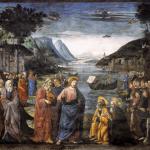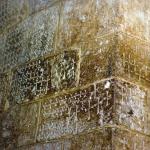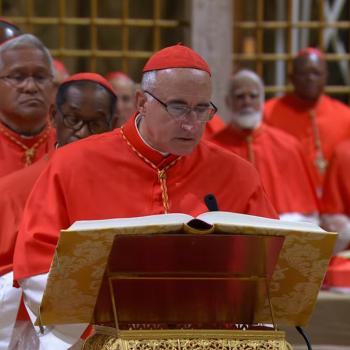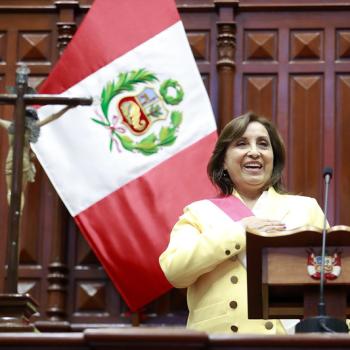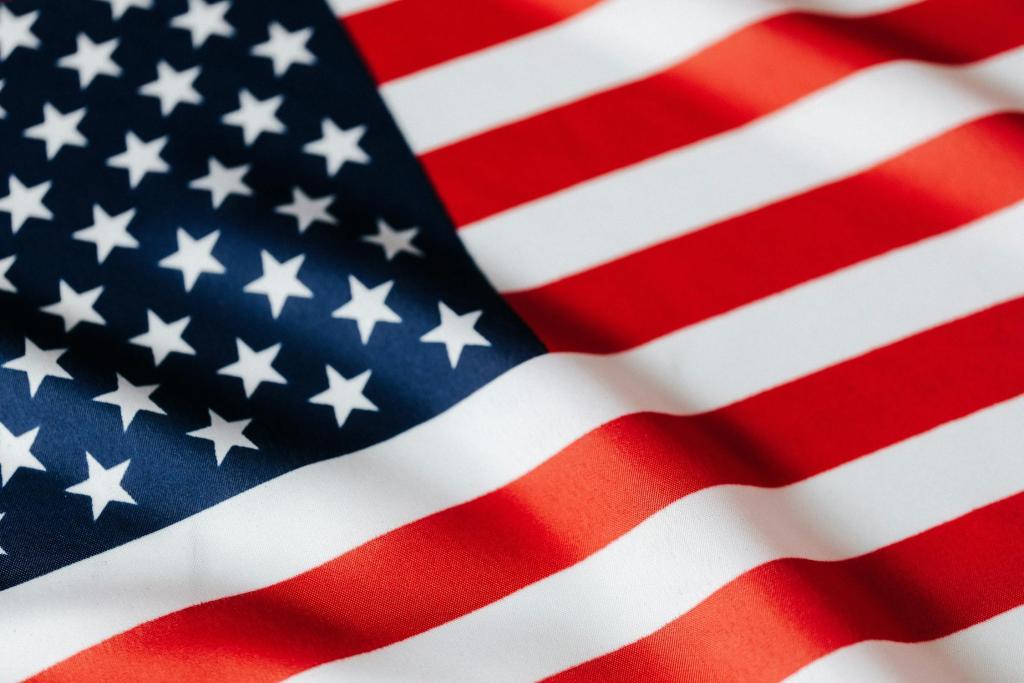
Today we hear the most sacred prayer of the Jewish faith, first in its original iteration in the Book of Deuteronomy, and then from the lips of Jesus:
Shema Israel, adonai eloheinu, adonai ehad
“Hear, O Israel! The LORD is our God, the LORD alone!
Therefore, you shall love the LORD, your God,
with all your heart,
and with all your soul,
and with all your strength.”
This prayer is known as the Shema Israel, which is recited twice daily by observant Jews, in the morning and in the evening. This short prayer captures the essence of the Jewish faith (and our own). God is one, and we are called to love him with our whole being. There is nothing greater than him – nothing can even compete with him.
Parents teach the Shema Israel to their children and pray it with them before going to bed. Oftentimes these are the last words uttered before death by observant Jews.
Jesus answered correctly to the question posed to him by the scribe in the Gospel passage. The scribe should not have been very surprised actually that Jesus answered with the Shema. Jesus does “add” to the Shema Israel however, raising the bar in God’s commandments: “the second is like this, you should love your neighbor as yourself.”
Jesus does this, not in a spirit of changing Scripture, but rather, to add greater understanding as to how one can love God completely. By loving neighbor as yourself, you get a little closer to loving God.
The scribe’s response to Jesus also adds something to the Shema. The scribe says that loving God and neighbor is worth more than all burnt offerings and sacrifices. This addition gives even greater emphasis to the importance of loving God wholeheartedly. Jesus and the scribe, perhaps at first adversaries or at least suspicious of one another, walk away satisfied, they were able to agree on something.
The Shema Israel teaches us that we cannot be divided, but rather we are to place God above all else. No country, no culture, no political leader can compete with God who is the supreme good that we are called to love and follow.
In the year 250 after Christ, the Roman emperor Decius issued an edict that required every single subject of the Roman empire (except Jews), to offer a sacrifice by burning incense to the Roman gods in the presence of a Roman magistrate for the well-being of the emperor and the glory of Rome. After offering the incense, the subject would receive a written certificate stating he had offered the sacrifice. Everyone had to do this. Being caught without the certificate meant certain death because it implied you were not a loyal subject of the emperor.
Christians in the empire refused to offer the sacrifice because it involved offering sacrifice to pagan gods. This action would violate their belief in One God who commanded love and service to him alone.
The persecution under Decius was brutal. Many were martyred, but a good number of Christians gave in, offering the sacrifice to the gods. Once Decius died and the persecution ended, the church had a serious dilemma: thousands of people who offered the sacrifice had now repented, and wanted to come back to the church. They made penance, and were admitted back into the fold.
I share this historical event in the context of today’s readings and the elections which will be held next week.
The Catholic Church has learned a profound lesson throughout its 2,000-year history. The Catholic Church will not tell you who to vote for. No political party captures the Christian values and beliefs of the Catholic faith. In a way, we are caught in the middle similar to the early Christians – there are no good options.
Some argue it is better to choose the lesser evil. Yet remember, there is still evil in a lesser evil, and one must repent and make amends even when a lesser evil is chosen. We cannot make a god of a political party or candidate.
Our situation is not easy my friends, and I recognize it. The Church encourages us to be informed on the issues important to our faith and to vote according to our conscience. Then, we must make reparation through word and action for the evils advanced by whoever we choose. If your conscience does not allow you to vote for any candidate, it is more important to follow your conscience and act in that way.
When it comes to social issues, the Church speaks of the dignity of the human person from the womb to natural death, of the importance of the family, the responsibility to assist the poor and vulnerable, of the rights and needs of immigrants, the care of God’s creation, and the dignity and rights of workers (taken from the website of the US Bishops).
We pray today for our civil leaders, for those running for office, and for us. We pray for wisdom and clarity to move forward seeking God above all else. Not creating other gods or new gods, but praying and remembering the words uttered by Jesus today:
“Hear, O Israel! The LORD is our God, the LORD alone! Therefore, you shall love the LORD, your God, with all your heart, and with all your soul, and with all your strength.”


